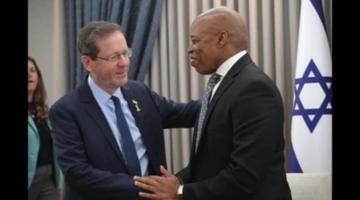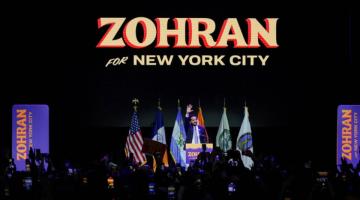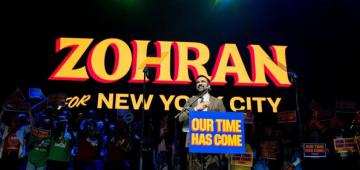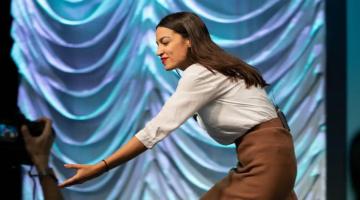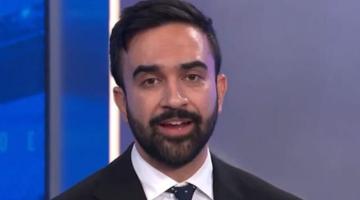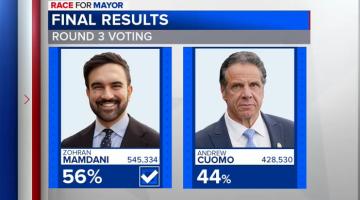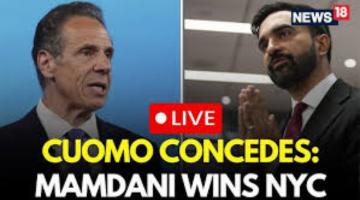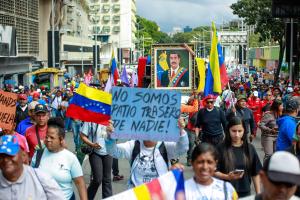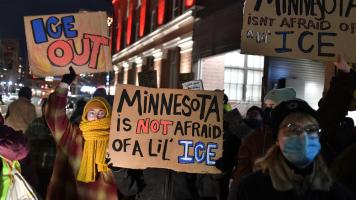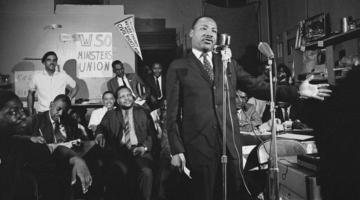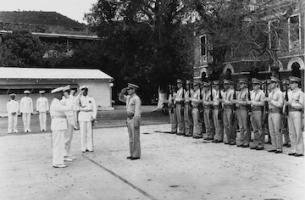Zohran Mamdani's victory in the New York City mayor's race was significant, but liberalism succeeds by presenting a veneer of change where it may not exist.
Originally published in Vox Ummah.
In the shadow of genocide, while Gaza burns and its skies bear witness to one of the most one-sided assaults in modern history, a Muslim man ran for mayor in the heart of empire and won. People celebrated, calling it a win for progress, diversity, and even justice, as if a scheduled political election had reversed history. As if liberation had arrived not in the form of dismantling state power but by crowning someone who could speak against it politely from within its walls.
Zohran Mamdani’s ascent was a familiar ritual – liberalism’s favourite act: taking the language of resistance, draining it of substance, and performing it just long enough to pacify those who still remember how to rage.
His campaign was slick, built on Bollywood soundtracks, trendy edits, and the images of the brown boy made good. Immigrant nostalgia was folded neatly into electoral language. It was carefully curated identity politics, designed not to unsettle power, but to charm it. It spoke to the hunger for representation among South Asian and Muslim communities, yet offered no real confrontation with the systems responsible for their marginalisation. The Spectacle worked.
Zohran ran on a platform that included free buses, rent freezes, and childcare for all. Policies that sounded left but lived centrist in application. He framed himself as anti-capitalist, yet never touched the scaffolding of imperialism on which capitalism depends. He spoke of housing and healthcare, but not occupation or settler colonialism, in ways that unsettled the state. He wanted to be revolutionary, but only on terms that wouldn’t revoke his invitation to the table. He wanted visibility, not exile, approval, not sanction. And to achieve that, he played by the rules that have always governed the ascent of people of colour in the West: disown the resistance, pacify the people, and become the story the empire can tolerate.
When asked about “globalise the intifada,” Mamdani avoided both rejection and affirmation. Instead, he hedged, saying it wasn’t his place to police language. But neutrality in the face of resistance is not neutrality – it is alignment with the status quo. Soon after, he tweeted that peace could only come from ending the occupation and dismantling apartheid. The type of language that leans towards liberation but stops short of naming its agents. He wants a dismantling that doesn’t disturb. Apartheid is gone, but Israel remains. Liberation is abstracted from those who fight for it. Solidarity that never costs him anything.
And then there was October 7. When Palestinian fighters stormed out of Gaza, breaking the illusion of Israeli invincibility, the world recoiled. Zohran Mamdani issued a statement, calling the attacks “horrific.” No mention of the sixteen-year blockade or the occupation. No historical context. Just horror – convenient, detached, and familiar. His words echoed familiar liberal zionist talking points. The people of Gaza – dispossessed, besieged, brutalised – vanished from his story, erased from the narrative in real time by the very politician claiming to stand for justice.
Only weeks later, when outrage turned bipartisan, when silence became too loud to bear, did he pivot. He began by saying “apartheid”. He began referencing occupation, gesturing left again. But the shift felt calculated, not born from conviction.
This is where his politics unravel – not just at the edges but at the core. His language mimics revolution, yet his position safeguards the empire. What good is a Muslim face in office if that face will not call out the mechanisms killing Muslims abroad? What worth is a brown name if it can’t say “Zionism is the problem,” out loud, in the city that funds, shelters, and justifies it?
Here’s the truth no one wants to say while the confetti still falls. The rise of a Muslim settler of colour to mayor in a settler-colonial state isn’t a win for the oppressed. It´s a triumph for the liberal machine that knows exactly how to package power in acceptable skin.
Mamdani didn’t defy the system. He is what the system builds when it feels threatened: A controlled burn, a release valve. A politician who can channel anger without threatening order. Someone who gestures toward liberation while kneeling to the structures that make liberation necessary.
He isn’t the first. Obama was the prototype – a man who once walked alongside Edward Said, who spoke of hope, who quoted Baldwin, then went on to bomb weddings, expand surveillance, and uphold every border that caged the people he once claimed to come from. Mamdani’s arc follows that line. It is the blueprint, and that blueprint is increasingly effective.
The new order no longer relies on silence but on aesthetic resistance – people of colour who quote Malcolm but shudder at the idea of armed resistance. Muslims who call for a ceasefire while condemning the very resistance that forces negotiations onto the table. Brown faces on blue banners, faith emptied of fire and identity retooled as insulation. What we’re all calling representation is actually absorption.
Mamdani’s campaign leaned heavily on the identity: Muslim, South Asian, immigrant. Each carries the weight of history, displacement, and diaspora. In his hands, they became aesthetics, not politics. It’s not the presence of culture that was the problem; it’s the absence of confrontation. This was identity without struggle, Muslimness without militancy, tradition without tawḥīd.
The timing made it worse. While his campaign gained traction, Gaza was being eviscerated. While voters in New York debated his policies, children were pulled from the rubble. As he spoke about rent control and childcare, fighters in South Lebanon were labelled terrorists by the same state whose approval he sought. And yet, not a word in defence of those fighters. No word for the resistance. Not a word in honour of the martyrs.
He didn’t need to. He was already being positioned as the good Muslim, the one who speaks softly while the ummah cries out. The one who rises through respectability while others fall in resistance.
And this matters more because he is Shīʿī – or claims to be. There is a deep tradition within Shīʿī thought, one that does not bow, one that remembers Karbala, one that stands with the oppressed even if you are slaughtered for it. A tradition that still breathes through the bodies of resistance fighters across Lebanon, Syria, Iraq, and Yemen.
But Zohran Mamdani, the Shīʿī mayoral candidate, did not invoke or embody that tradition. He became, instead, its antithesis – a Shīʿī face used to neutralise Shīʿī resistance. A brown man is elevated precisely because he would not do what other brown men are being killed for doing.
What does it mean when the West props up a Shīʿī politician at the exact moment it is bombing Shīʿī fighters? What does it mean when the only Muslims allowed into power are those who do not disrupt it? What does it mean when the language of “representation” is deployed to undermine the global resistance to empire?
This is why we must be careful. Because when we start confusing presence with power, and identity with impact, we lose the plot. Mamdani’s win matters, yes – but not in the way people think. It does not show a system evolving. It shows a system adapting. One that has learned to speak the language of the left, to quote the prophets of justice, to nod at resistance while sterilising it.
And people fall for it because it feels good. It feels like progress. But if you listen closely, if you strip away the applause and see who still holds the guns, the drones, the aid money, and the power to erase, you will understand. This is not a new story. It is the same one – with new actors, a new poster, a new hashtag.
This is not the victory people imagine. It is not a blow to imperialism. It is its latest disguise – one that looks like you, sounds like you, speaks your language, sings your music, yet serves your enemy. Real resistance is never elected in the belly of the empire. It is smeared, silenced, bombed, starved and dehumanised.
Resistance does not become mayor. It does not govern or seek power; it dismantles, it seeks justice, it speaks of liberation, not just ceasefires.
Zohran Mamdani is the mirror empire holds up to show how much it has learned, how far it can move without changing at all. And if we celebrate that, then the loss is already ours – not because he won, but because we mistook his victory for our own.
Marwa Yousuf K. is a writer exploring how politics and faith shape life in Occupied Kashmir and beyond, with contributions to local publications and community platforms.

